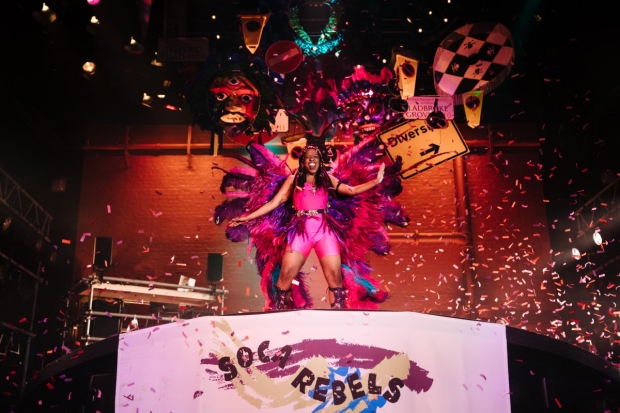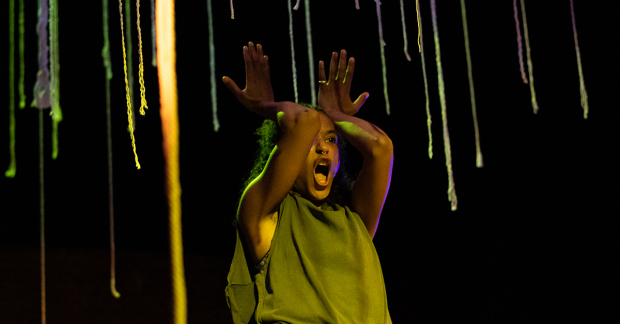Sarah Crompton: Five thoughts as theatres begin to reopen
Sarah Crompton reflects on the effects on the pandemic, and what’s to come

© Helen Murray
It's an anxious time for British theatre, and as I watch the Euro 2020, tennis from Queen's, Ascot racing and the cricket on TV, it's hard not to feel that once again our cultural life has been neglected while sporting fixtures surge ever onwards. But assuming that theatre does indeed manage to get back to full performing life in July, there are conclusions to be drawn from all that the sector has been through in the past 18 months.
Here are my five main thoughts:
Number 1:
Theatre and the performing arts must never again apologise for their existence or be made to feel that they only matter because they contribute mightily to the exchequer. They do that, but when push came to shove and the lights went out, their importance as a business didn't count for very much with the powers that be. What did count was what they meant to audiences, who greeted every flicker of their return with such overwhelming enthusiasm that it made me want to cry every time I sat down to watch anything. Applause before the curtain rises when performances took place in socially distanced venues, and the huge numbers booking to watch culture online, reveals a hunger for the richness and revelation of the performing arts that is important to remember.
Number 2:
The reverse side of that is theatre shouldn't assume that the audience that greets them with such warmth is the only audience there is. If lockdown proved anything it was that there is a genuine human need to connect and an emotional need to engage with difficult issues in a safe, debating space. Nearly everyone felt that, and not everyone is included in theatre's embrace. The creation and sustenance of new audiences, whether live or digitally, must be one of the most important tasks going forward.
Number 3:
Theatre shouldn't necessarily feel that it has to be earnest all the time. Some of the plays that have emerged post-lockdown have felt necessary and urgent, but also in profound ways undramatic. In redefining theatre, you don't have to forget that argument is part of drama, and so are different points of view. The reason a play such as Jasmine Lee-Jones' seven methods of killing kylie jenner (reopening the Royal Court) has won such acclaim is that its examination of racism and social media feels essential, but it also springs to life as entertaining and engaging drama. It's a proper play. It's therefore important that we nurture emergent writers who engage with the issues of the day but turn them into drama not leader columns. It's also important to remember, that theatre can simply be about having fun. A great comedy has the same value as a serious drama, they just feed different aspects of life.

© Myah Jeffers
Number 4:
We are so lucky in this country to have the actors, directors, designers (visual and sound) and choreographers we have. Time and time again, as people have made work in empty theatres, or in half-full auditoria, I have been overwhelmed by the sheer depth and range of talent on display. Every time the talent pool is opened further, greater wonders emerge. Nowhere is this truer than in the conscious effort that theatre made two decades ago to encourage ethnically diverse actors. We are now looking at a generation who dominate Hollywood as well as our stages as a result. We now need to make sure that the same effort goes in behind the scenes – and what is true of race is also true of class. Diversity makes theatre richer.
Number 5:
I have felt incredibly safe in socially-distanced theatres, yet I wouldn't have ventured anywhere near Leicester Square when it was packed with Scottish football fans. It is madness that cultural venues have had to play it so carefully when other mass gatherings have been allowed to proceed. But there is a reverse to this coin. Everyone understands that it is not economically viable for theatres to keep opening at massively reduced capacity, but theatres need to remember that many members of their audience will, like me, have some anxieties about returning to close contact. It's important, I think, that they continue to be careful and to reassure people on their return.
The season that is spreading in front of us is full of plays and musicals I want to see – from Andrew Lloyd Webber's much touted Cinderella, to the magnificent J'Ouvert by Yasmin Joseph in Sonia Friedman's excellent Re:Emerge season of new writing, to Ian McKellen's Hamlet, to the mouth-watering prospect of James McArdle and Saoirse Ronan in Macbeth at the Almeida and much more.
I've got every finger and toe crossed that there are no more delays and theatres will once again be able to welcome happy audiences. But I hope that as everything returns to almost normal, we all remember what we have learnt – as well as what we nearly lost.












